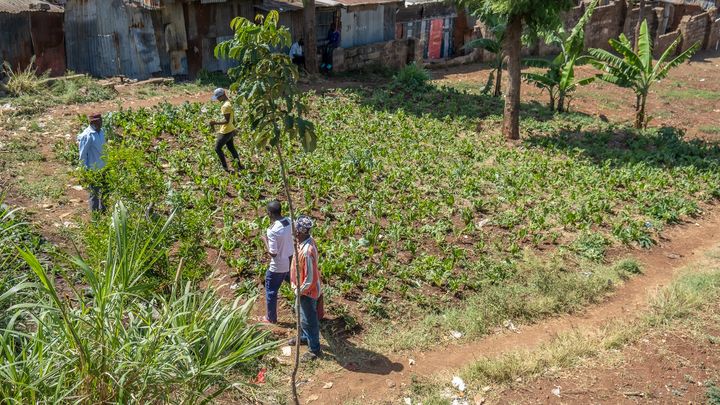
From Crime to Green
Donation protected
This is a fundraiser to raise the amount needed to assist a group of young men in Mathare who have reformed themselves from a life of crime to regenerate themselves, their community, and environment. In 2016, these young men transformed a large piece of land in Mathare, one of Nairobi’s largest informal settlements, into a green park and agricultural space, where they grow vegetables to sell to their community. They named it the Mathare Green Park.
From Crime to Green: Empowering Youth in Nairobi's Informal Settlements

Early in 2022, Sheena Shah, Director of Harvesting for Good East Africa, was introduced to a remarkable group of young individuals residing in the heart of Mathare, one of Nairobi's largest informal settlements. This introduction came courtesy of Jaclynn Ashly, a dedicated journalist who had been shedding light on the profound impact of brutal police violence within these communities.
In Mathare, Sheena encountered a group of young men who had undergone an epic transformation. In 2016, these individuals, lacking formal training, had turned a barren piece of Mathare into the thriving Mathare Green Park—a green oasis and an agricultural haven where they grew vegetables to sustain their community.
Jaclynn recognized the significance of their efforts and their potential to create systemic change. Sheena's visit in February confirmed the incredible potential of this group. She was captivated by their determination to acquire practical skills and further develop their land into a functional space that could inspire their community.
In November, members of this group visited our project site at the Ruiru Rehabilitation Centre, gaining invaluable insights and taking away lessons to apply to their own land. In January, we donated over 80 seedlings to kickstart their journey.
The Mathare Green Park, a 3-hectare ground where each of the 16 members tends to their own plot, symbolizes more than just agriculture; it represents a beacon of hope and systemic change.
Over the past year, we've meticulously designed a program with clear goals, recognizing the profound importance of this project. The group's core belief is that by equipping themselves with valuable skills and cultivating their own food, they can provide meaningful employment, foster community bonds, and combat the significant issue of incarceration driven by a lack of opportunities, which often pushes young people into criminal activities.
This initiative is a powerful coping mechanism. Working the land and witnessing growth not only holds the potential for entrepreneurial opportunities but also acts as a deterrent to youth involvement in criminal gangs.
With the generous support of friends and colleagues, we've covered the first stage of the project—a week-long permaculture training facilitated by Harvesting for Good East Africa. This training empowered the group with knowledge and practical skills to transform their land. They are now ready to implement these techniques on their own 3-hectare piece of land, acquired by each member for developing their individual farms.
Ten out of sixteen men have now received training, with the hope that this work will create a ripple effect throughout the entire Mathare community and beyond. Peer-to-peer support is instrumental in changing beliefs and attitudes. This training took place at the Ruiru Rehabilitation Centre and marked a pivotal moment in their lives, as they've never before received such an opportunity and interest from the community.
Why this project is important to the group - At heart they believe that by learning a useful skill and growing their own food in disadvantaged urban areas/informal settlements, they can provide meaningful work, build communities, and help to ease the massive problem of incarceration in the area, driven by lack of opportunities that propel young people into crime.
It’s a huge coping skill to be working with the soil, planting stuff and seeing it grow. This type of work can effectively lead to entrepreneurial opportunities and also deters young people from getting involved with gangs, and providing them with something like this that is tangible, lessens that. This is why this is important work and why it has taken so long to deliver such a concept.



Our journey is far from over. We are now entering the second stage, which includes follow-ups, further training, and support with inputs and materials. Creating exchange visits and empowering the group to become agents of change within their community is our next priority.
However, to continue this vital work, we need your support. The most pressing need is funding. These young men are trailblazers in their community, offering a path to income outside of crime. They've embarked on a journey of self-reform, but they now require assistance to maximize their impact. Permaculture training is the first step in upgrading their farming techniques and accessing organic markets in Nairobi, creating a transformative impact on the land, the community, and providing income-generation opportunities for the youth and the entire community.
As Jaclynn Ashly, our facilitator and journalist, aptly puts it, 'If transformative pathways start with the people, these men have already accomplished a lot on their own. Now, however, they need support in building on what they have already created.'
Please reach out to us to explore opportunities for partnerships to strengthen the ongoing work with the group.

Read the full story here
Meet some of the inspiring members of Mathare Green Park below (images taken by journalist, Jaclynn Ashly who has worked closely with the group and capturing their story:
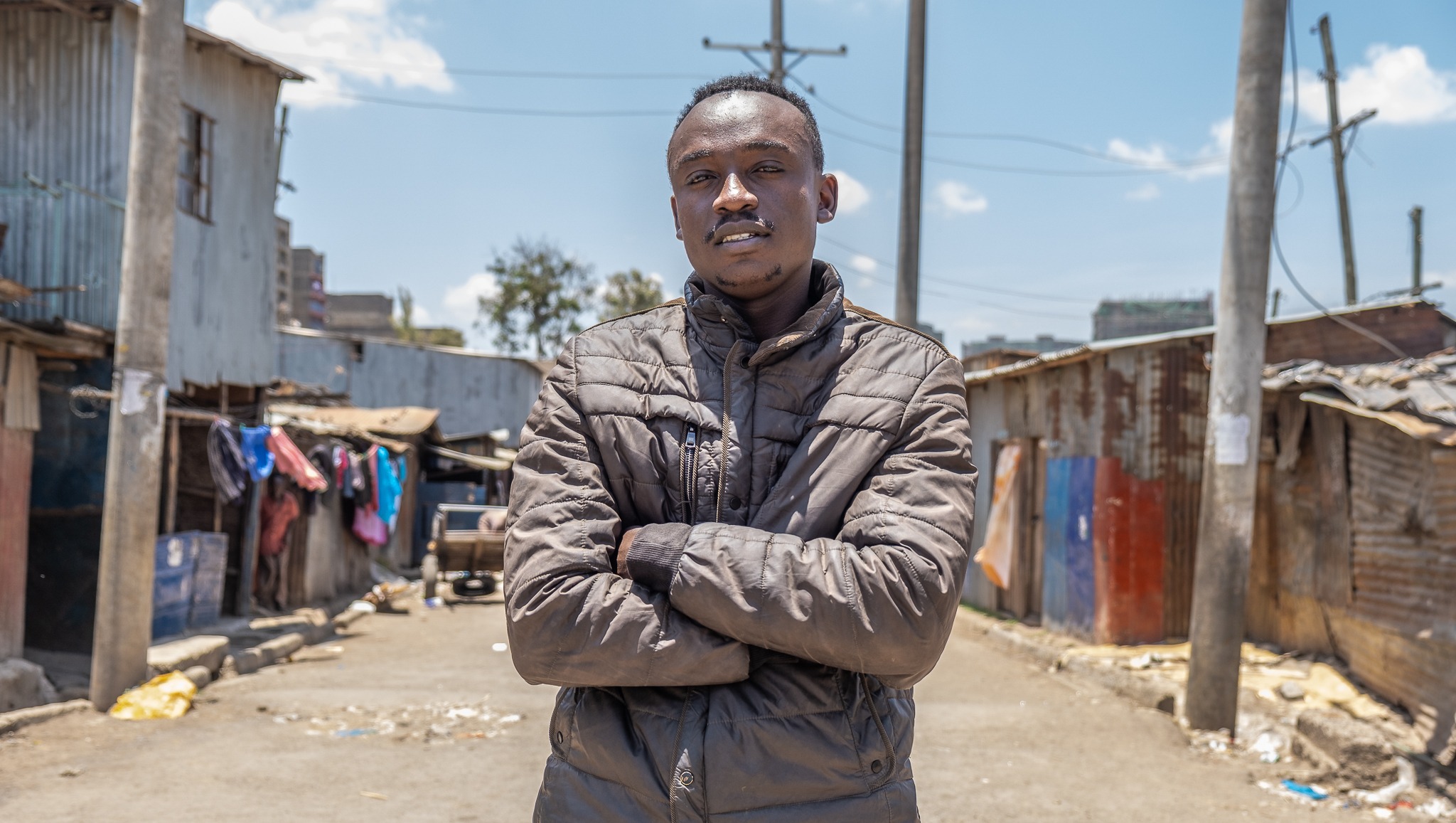
Anthony Mugendi, aka “Chief,” age 25
Mugendi is one of the founders of the group and continues to be one of their most vocal leaders. “All of us were doing bad things, robbing and stealing,” he says. “So many of our friends were killed by police or vigilante mobs so we needed to find a way out. We knew that our community was the only ones who would be able to protect us from this violence.”
“We had to get the community to trust us so they could protect us; we started working on creating a new bond with our community and providing them with services they needed. Now we have so much love and solidarity in this community and that’s the only reason any of us are still alive. All the mothers here bring their sons to us when they are acting badly. We try to show them that there’s another way in life.”
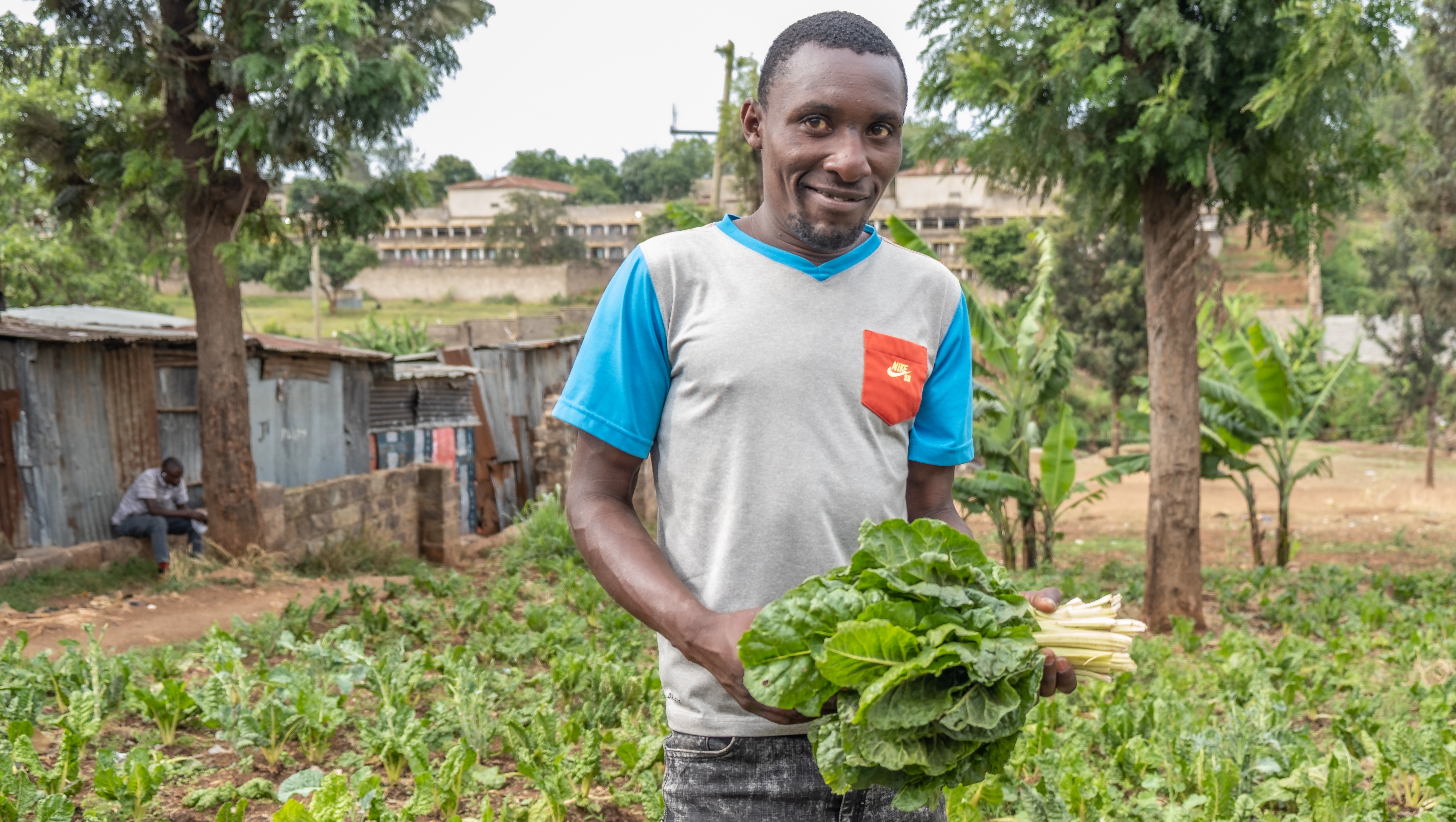
Patrick Kimani, 30-years-old
Kimani cultivates one of the land plots at Mathare Green Park, growing spinach. “This land has been very special to us,” he says. “It gives us an opportunity to grow food and sell our produce to the community. It is nearly impossible to find a piece of land as large as this one in the slums, so we are very lucky here.”
“I’ve learned a lot since we started Mathare Green Park. I know now how to work and look after myself without stealing or depending on anyone else. We are eager to learn more about permaculture and how to further benefit our community, while improving the quality of the food we’re growing.”
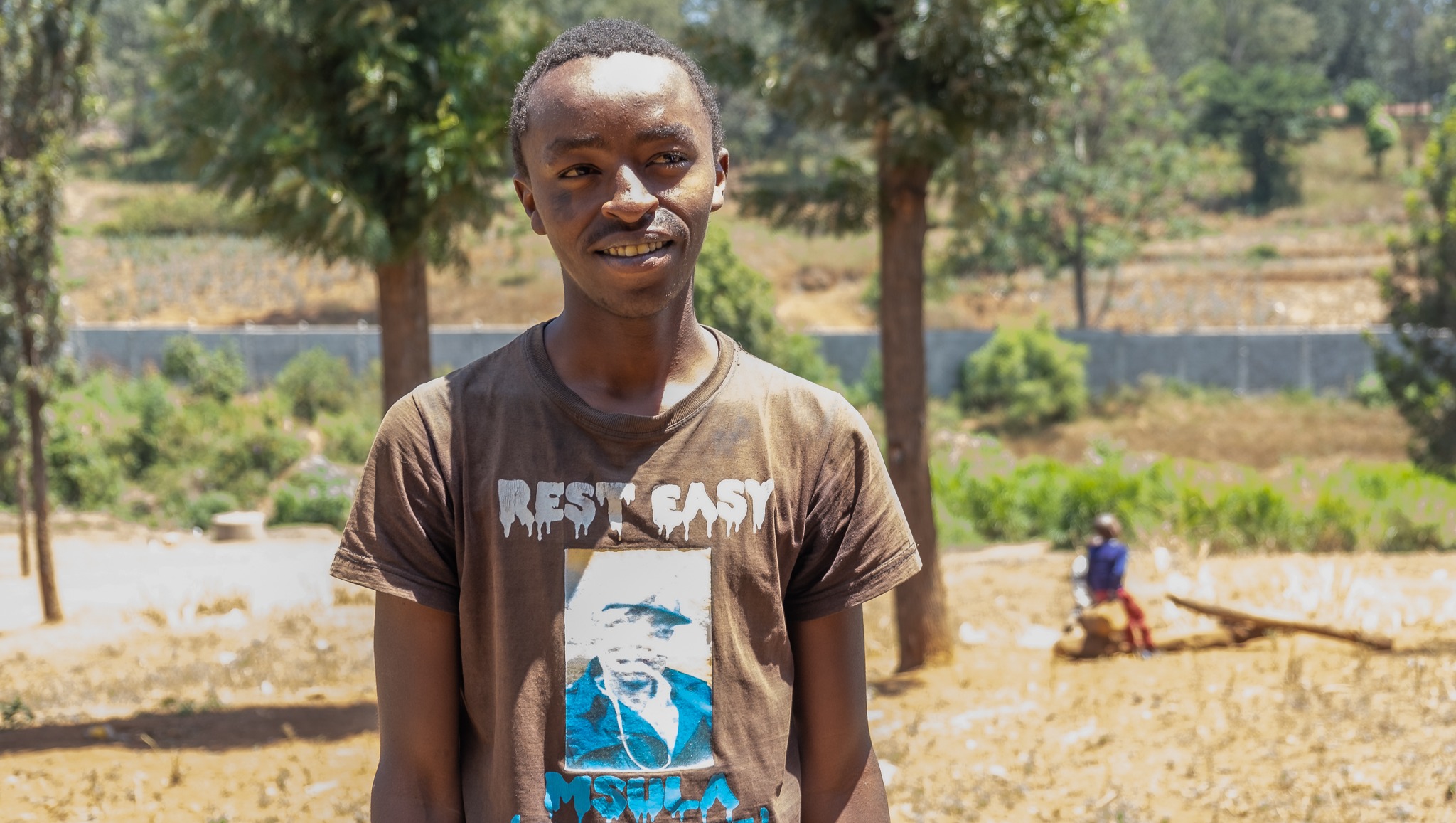
Frederick Ndung'u, 21-years-old
Ndungu says he got involved in Mathare Green Park after the group transformed abandoned government buildings on the piece of land into a library for the community. “Before this, I was selling miraa [khat],” he says. “Life wasn’t fair because maybe sometimes you would get some money, but most of the time you had nothing. When I found this library, it was really nice. I found myself reading storybooks. We never had something like this in Mlango Kubwa before.”
“The guys helped me buy some pigs and I began raising them for some income. I hope one day we can transform this whole piece of land into a ranch with agriculture and different types of animals. Farming is the backbone of this country so there are a lot of opportunities for us, but we need to develop our farming techniques. This can help us fight food shortages and malnutrition in our communities.”
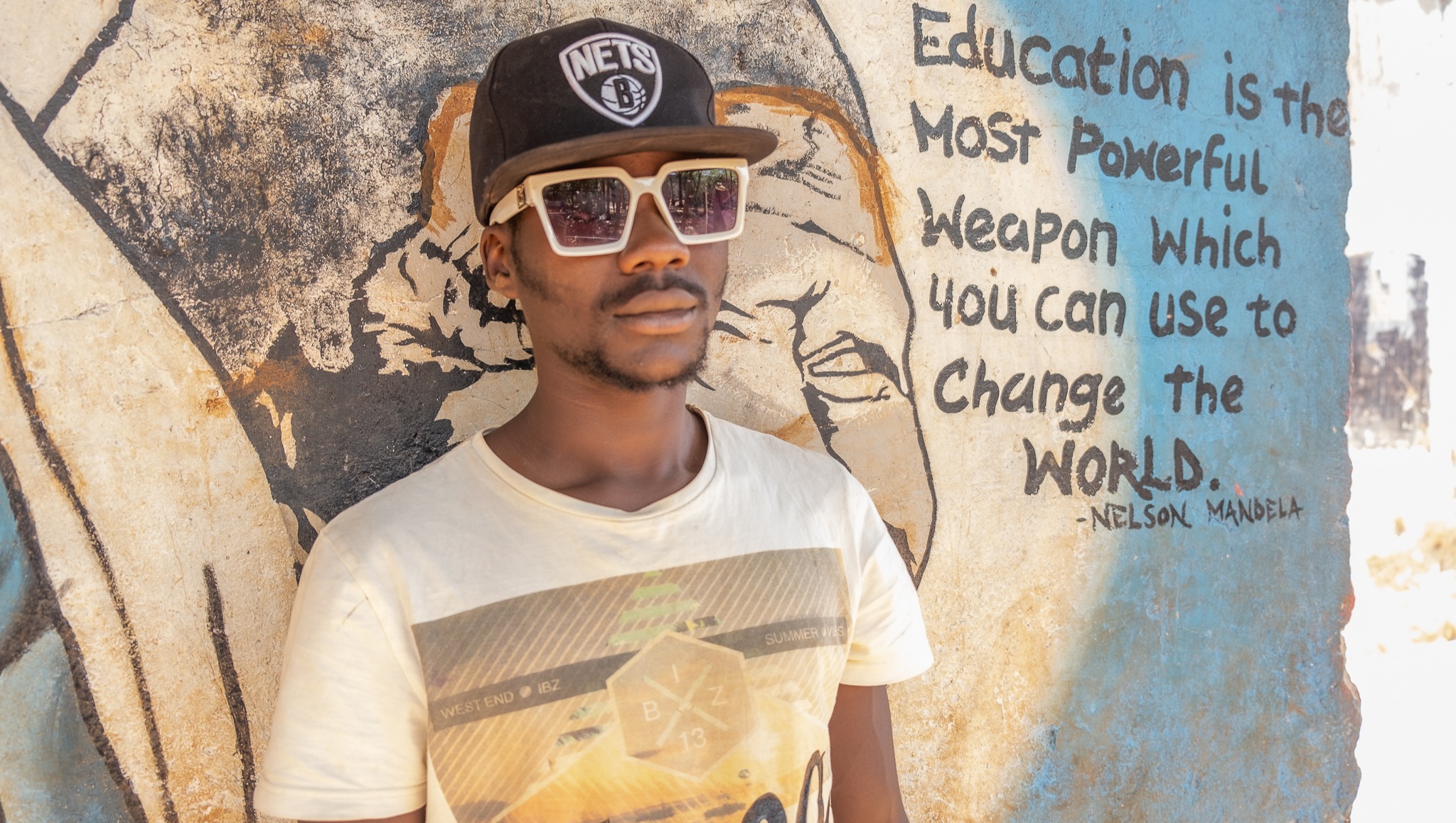
George Owino, 20-years-old
“I feel good since I joined the movement,” says Owino, who used to be involved in crime. “I began realising that I didn’t need to steal to make money. Now I do garbage collection around the community and I make sure the environment is clean and that we’re properly disposing of waste -- something that has always been an issue for us in the slums.”
“All of this really speaks to me. Having an environment free from waste and doing positive activities has transformed our community and the way we relate to each other. A clean environment must always come first and developing healthier and cleaner strategies of agriculture and livestock keeping will ensure that our community members have adequate and healthy food.”
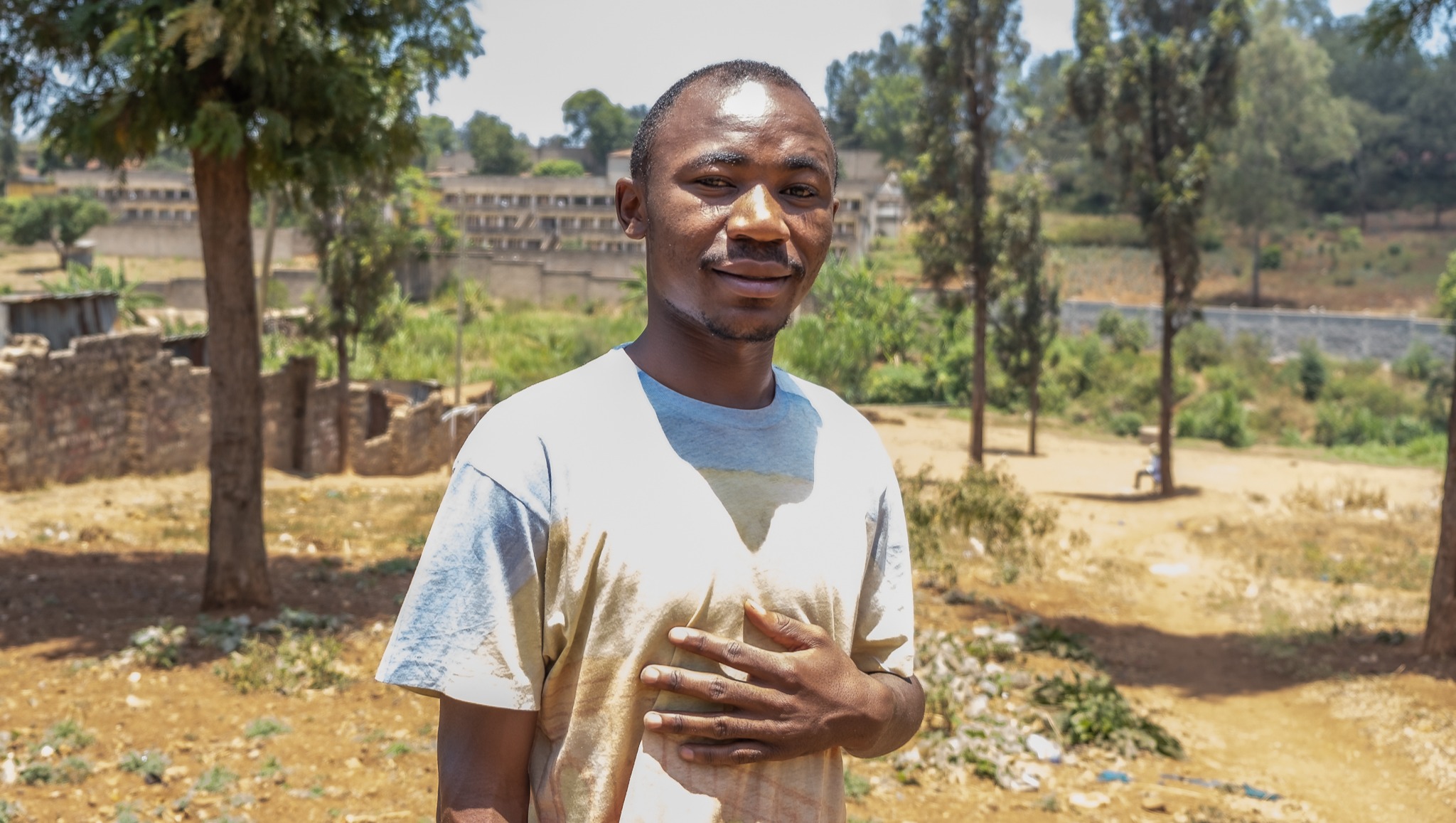
Wangechi Jomba Baraza, 24-years-old
“I joined Mathare Green Park after school because I didn’t have anything else to do. There’s no jobs or opportunities for us in the slums,” Baraza says. “It was the first time I was around people who had so much organisation and structure. They taught me how to generate my own income through diversifying my livelihood strategies.”
“Everyone in our community supports us by coming here and buying our vegetables. They believe in us and it makes us believe in ourselves. I’ve realised that we have so many capabilities inside of us and we don’t need to sit around and wait for the government to help us.”
“We want cheap and healthy food for our people. And agriculture is a way for youths in the slums to liberate themselves and find a self-sustaining income.”
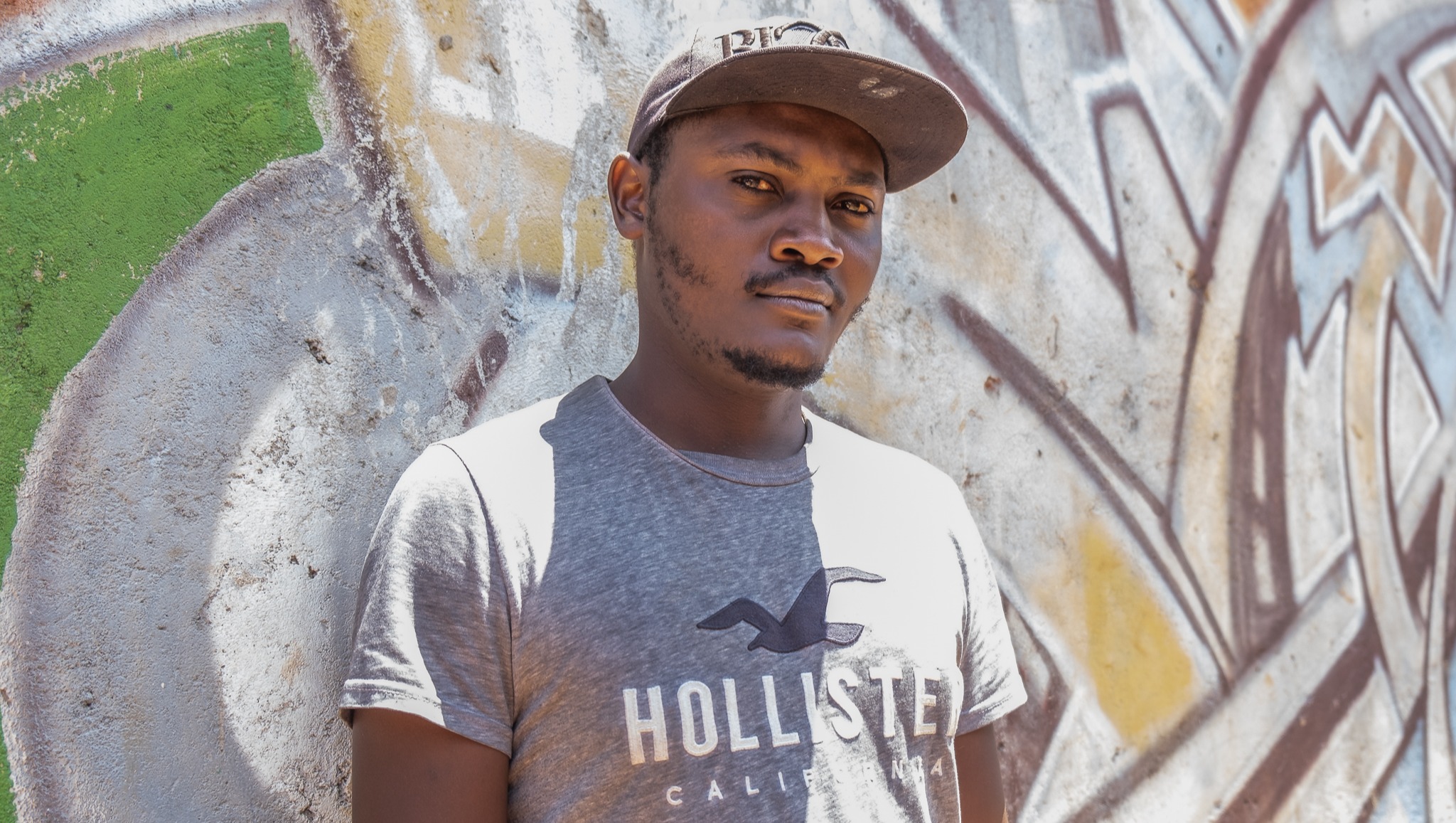
Brian Mwangi, 27-years-old
Mwangi had once made his living by snatching phones. “But I saw my friends reforming themselves so I decided to follow them and change my ways,” Mwangi says.
“Mathare Green Park provided me a loan through their small group savings so that I could buy a boda boda (motorcycle). Now I work as a boda boda taxi and also have a plot on the park to farm. Regenerative farming and permaculture could benefit our community so much by creating more jobs for us -- and this is the main thing the youths need in the slums.”
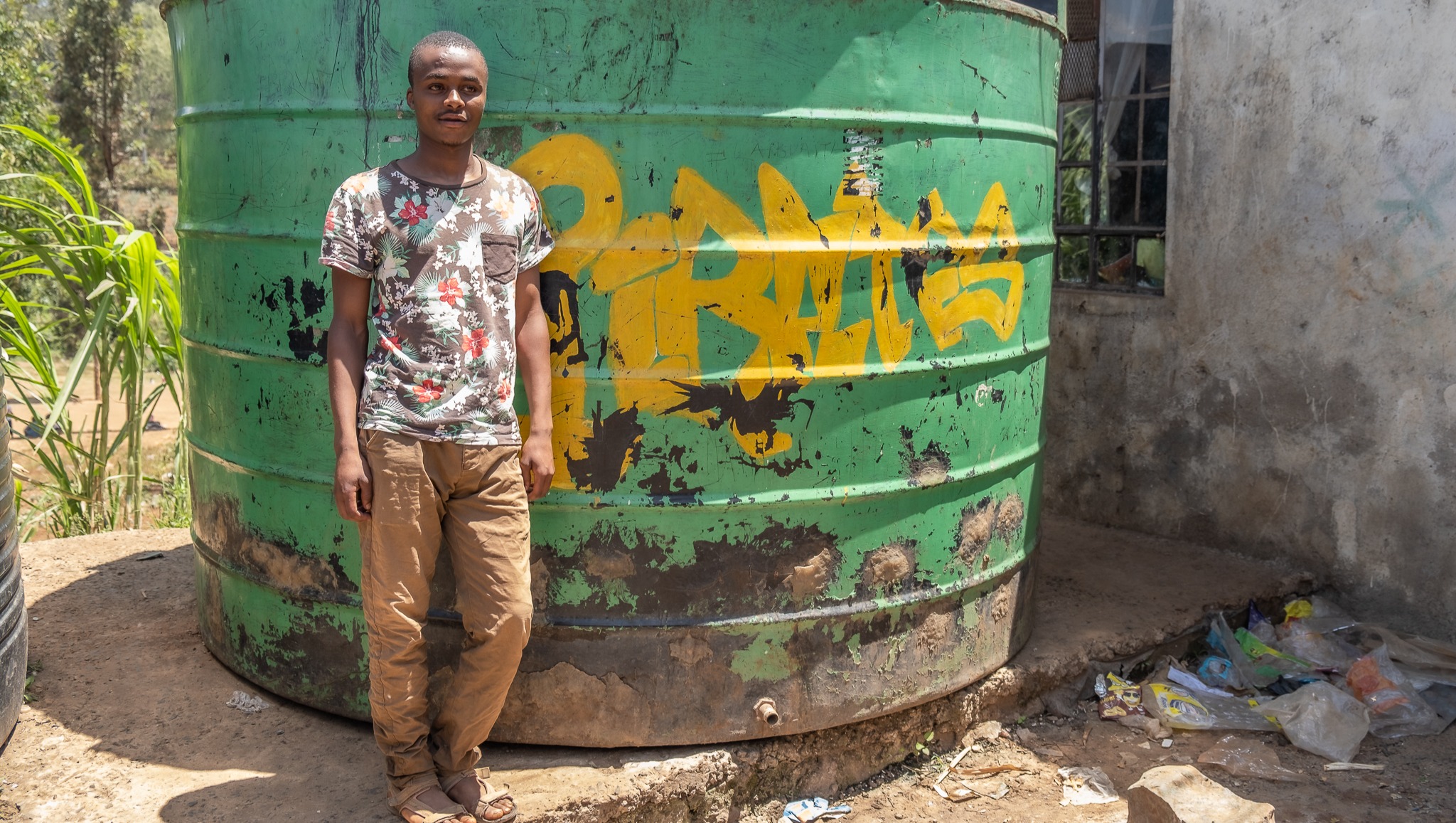
Pius Kimani, 21-years-old
Kimani joined Mathare Green Park when his older brother, 27-year-old Christopher Maina, a beloved member of the group, was shot and killed by police in 2017. Following Maina’s killing, large protests broke out in Mlango Kubwa. That same night, the police officer who killed Maina returned to the park and shot bullet holes in the youths’ water tanks, purportedly enraged by the community-wide demonstrations against the police.
“My whole family’s life changed after my brother was killed and that’s when I joined Mathare Green Park,” Kimani says, standing in front of the same water tanks riddled with now patched up bullet holes. “Pirates” is scribbled across one of them.
“Now I’m managing the garbage collection and making sure the environment is clean from pollution. I’m also cultivating sweet potatoes. I’m excited to learn about permaculture and regenerative farming. I hope to share this knowledge with friends and the rest of the community once I learn.”
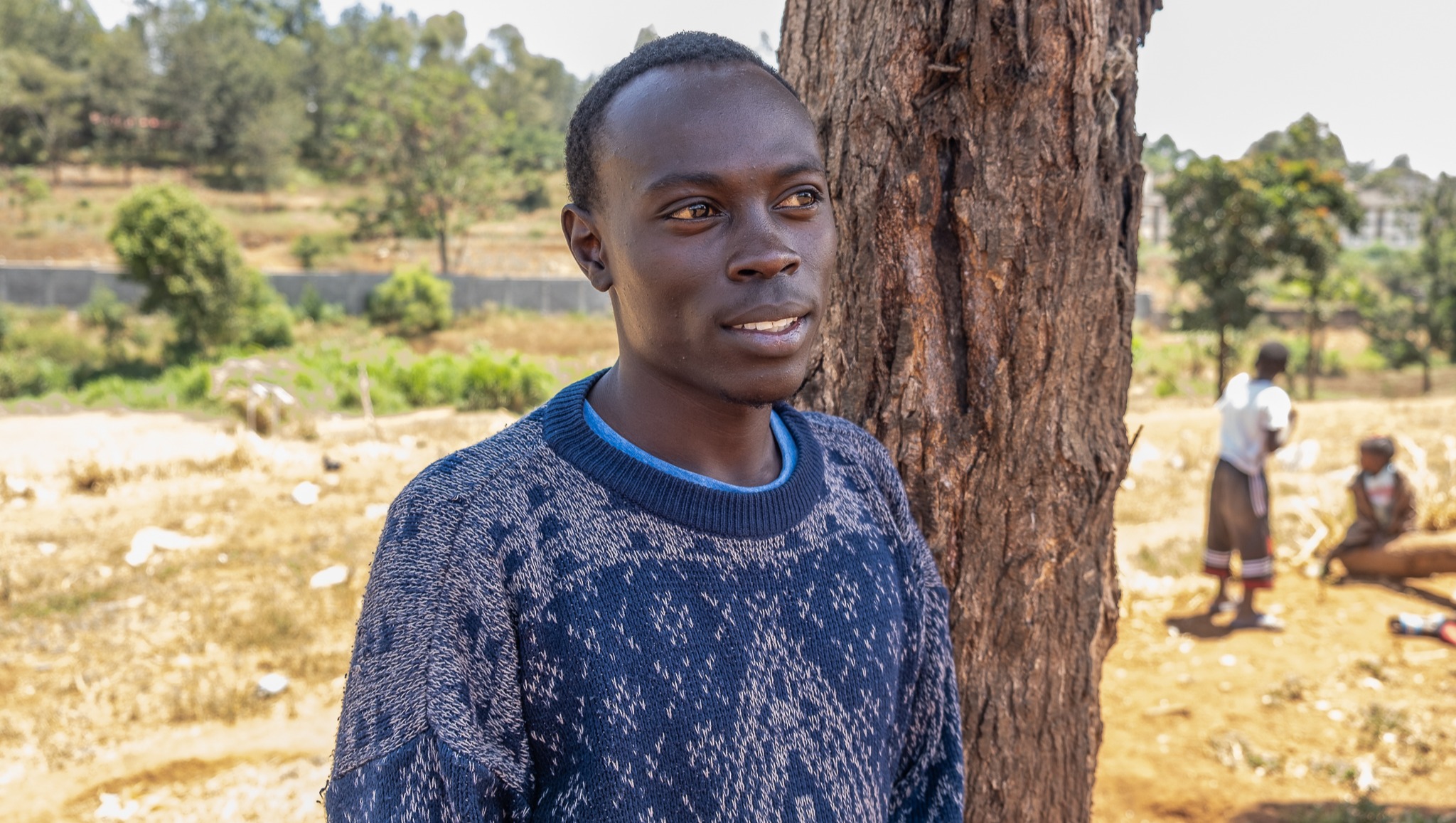
Edwin Maina, 24-years-old
“I joined the group after I finished school,” Maina says. “There was a lot of violence in the community and I joined the movement in 2017 to try and help stop this. During school, I was doing a lot of drugs and this group saved me from turning into a junkie.”
“Mathare Green Park has brought a purpose to my life to fight for what’s right and stand strong for justice. I studied agriculture in school and I’m very eager to learn more about permaculture and to see how we can apply this knowledge to better ourselves and the rest of our communities.”
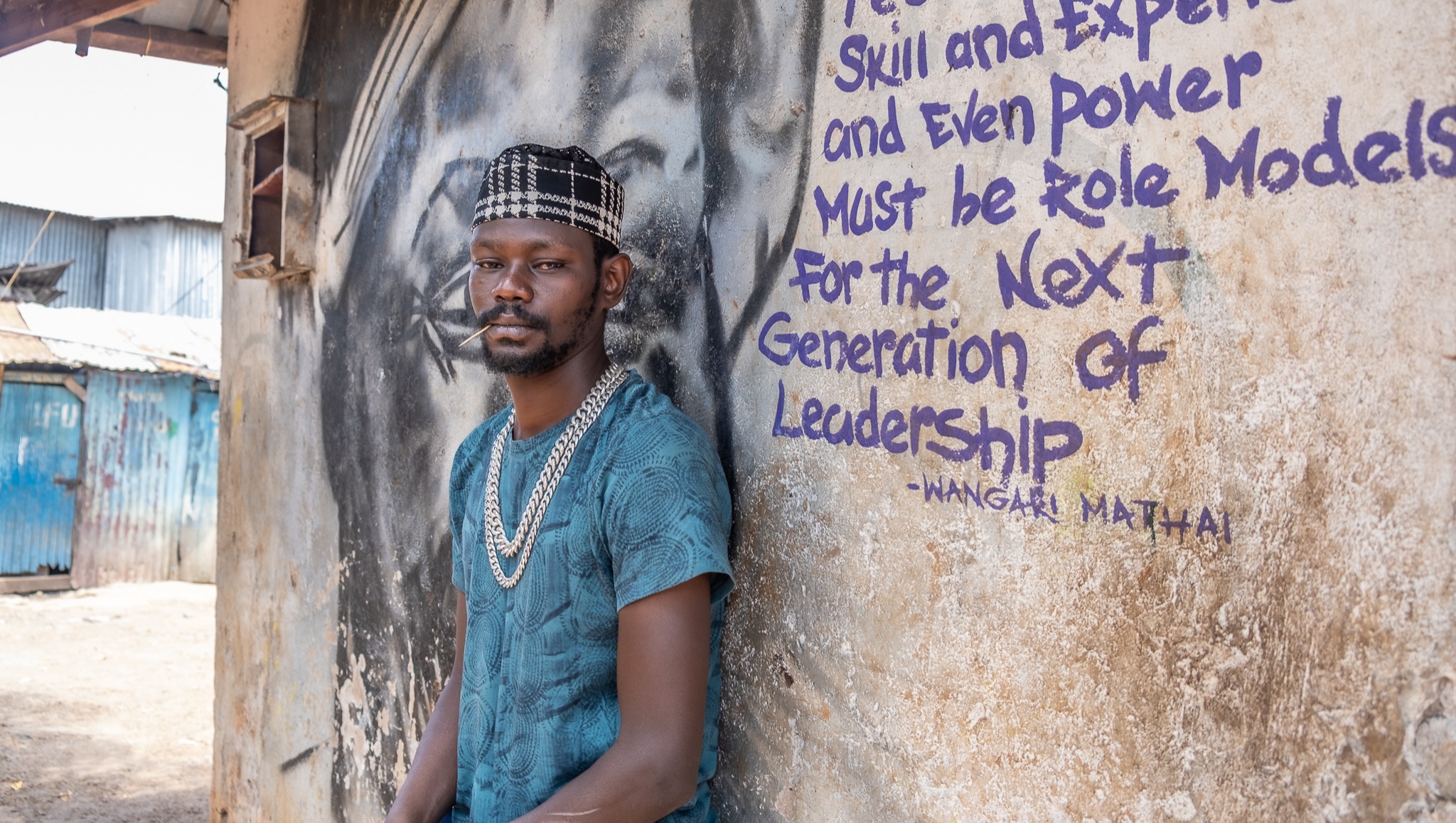
Frederick Githuka, aka “Sparrow,” 29-years-old
“I used to engage in a lot of criminal activity for a long time, since I was 7-years-old,” Githuka says. “There’s nothing else to do here. There are no jobs. So that’s the only thing that seemed to bring in any money.”
“But I started to transform myself after seeing a lot of my close friends killed by the police and mobs. Now, I’m farming and rearing pigs and trying to show the youth a different example so they don’t go down the same path I did.”
“I have started to learn about permaculture and regenerative farming. I’m excited about the idea of incorporating pigs into the cultivation of the land through rotational grazing. But I need some assistance on how to change the pigs’ diets to make them fitting for regenerative farming, as now they eat organic waste from the dumpsite.”
“I think permaculture training can take my farming to a higher level than it is now. And I’m looking forward to sharing these ideas and techniques to other youths throughout the slums.”
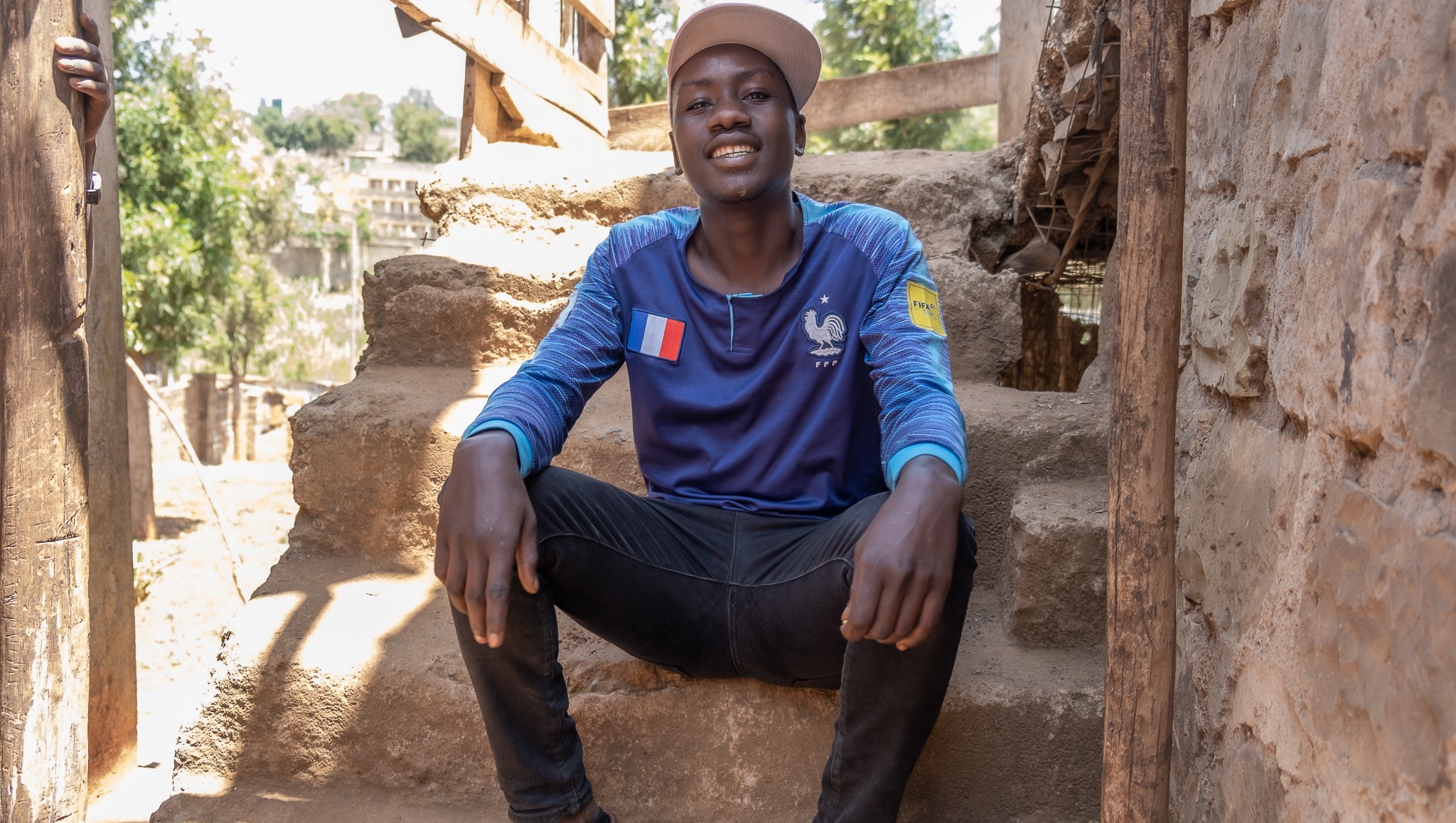
John Mwangi, 21-years-old
“I used to be a bad boy, a thief. That’s the only way I knew how to make money,” Mwangi says. “A lot of people like me were being hunted down and killed by vigilante mobs, so I joined the group in 2016 to get some protection. Now, I do garbage collection in the community. My life is much better now. I have my work and things are much more peaceful for me. If it wasn’t for Mathare Green Park, I would have definitely been killed. There’s no way I would be alive today to speak to you.”
“I would really like to learn more about organic and regenerative agriculture. But I don’t know much about it so I would need someone to show me. I think it could even help us convince the youths who still haven’t reformed to try it out so they can get a better direction in life. So I hope to share what I’m learning with them.”
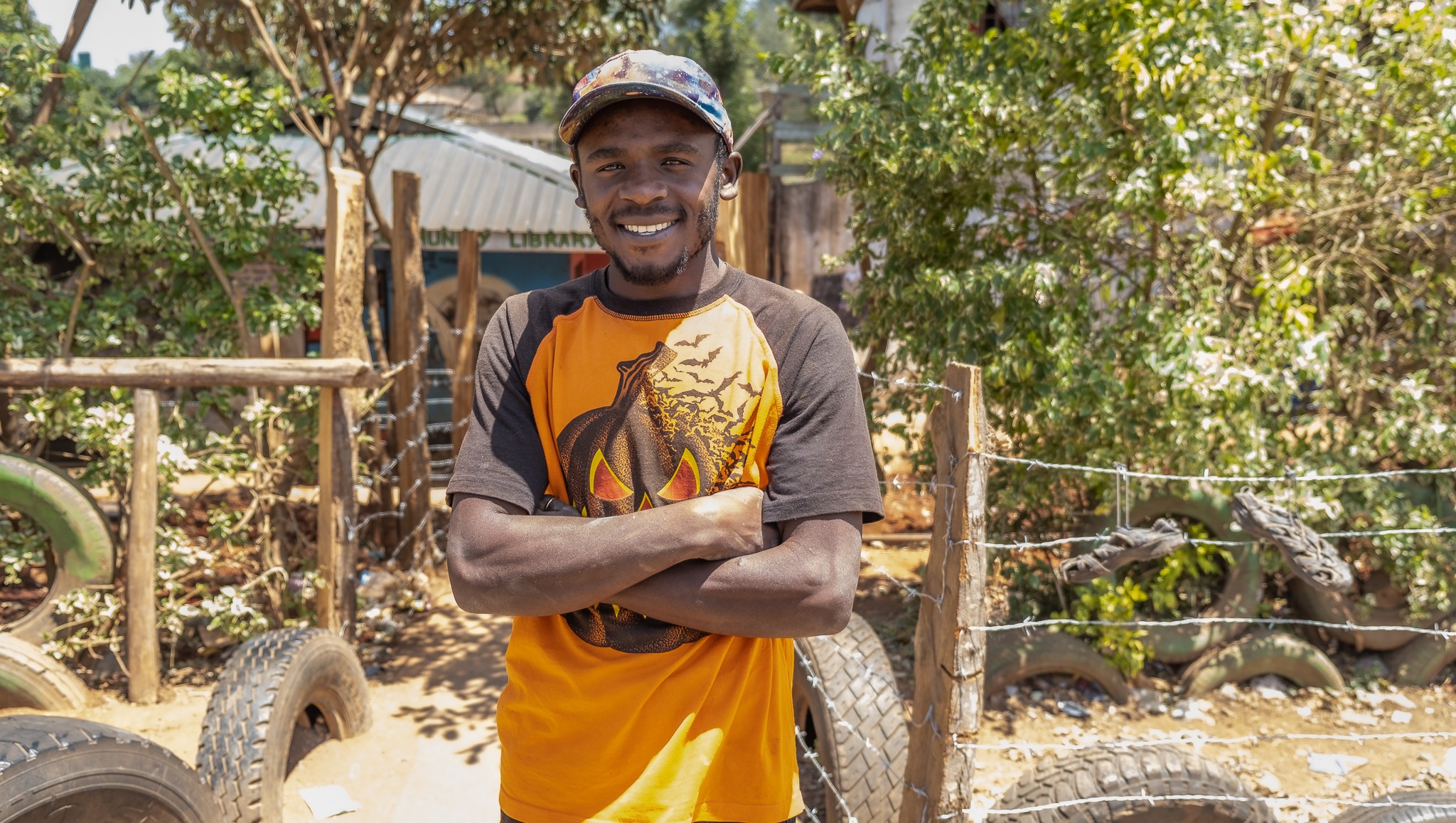
Michael Okang’a, 24
“I like the unity of Mathare Green Park and the support we give each other to be independent,” Okang’a says. “I farm vegetables on a plot in the park and I enjoy it a lot because I’m making some money and believing in myself and depending on my own capabilities. At the same time, the community is also receiving healthy green food straight from the farm.”
“We need a lot of work in upgrading our farming techniques. I believe if we do this we would get healthier land and healthier communities. And hopefully more opportunities for ourselves and our fellow youths. I’ve never thought about selling to organic markets. Honestly, I didn’t know they existed until recently. But I think it’s something we can do and it would be a really good example for the rest of the youths trying to figure out how to live and make an income in the slums.”
—-------------------------------------------------------------------------------
Meet the Facilitators of the Project
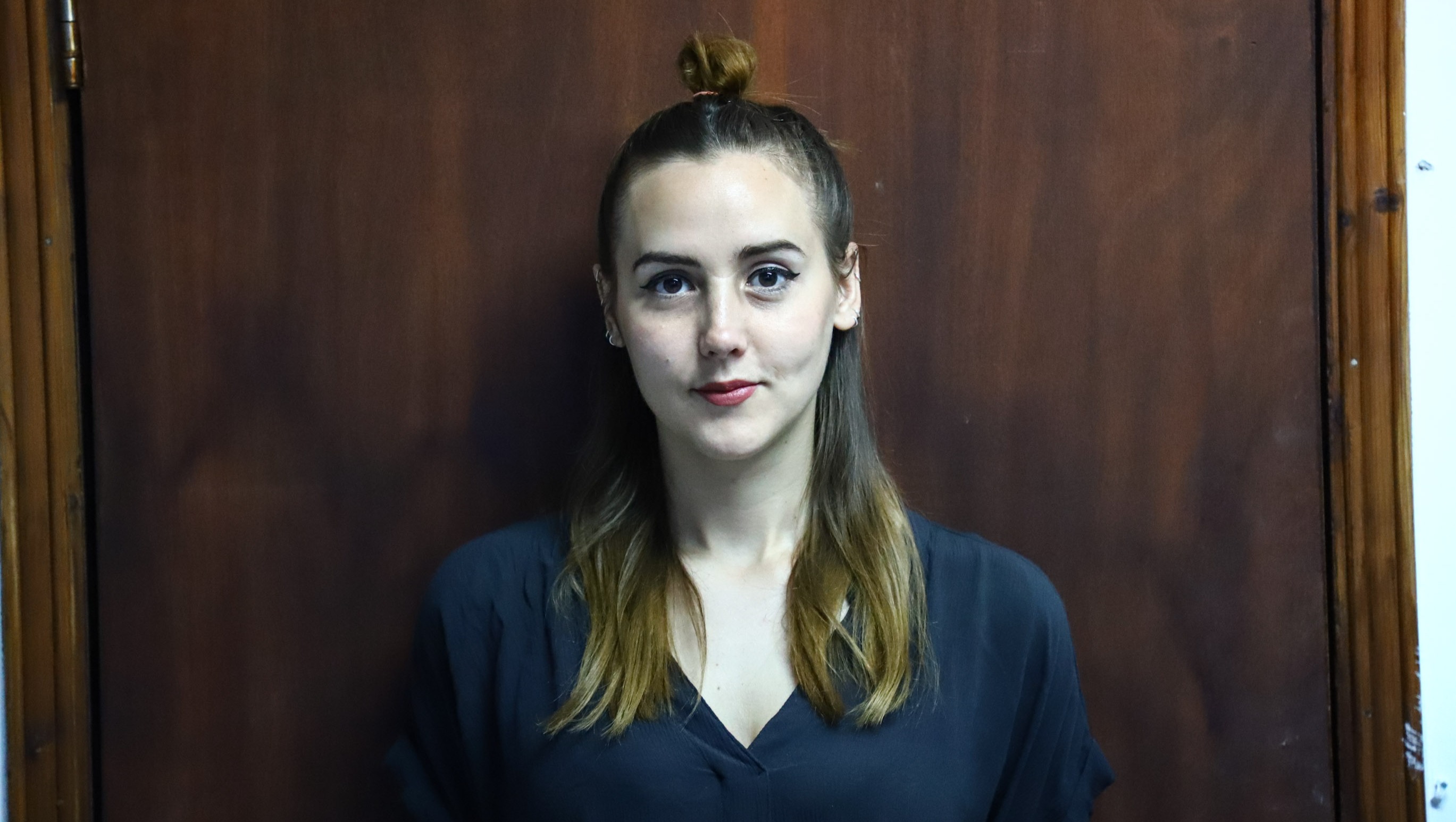
Jaclynn Ashly, international journalist
Jaclynn Ashly is an international journalist from the United States, who began working in and around Nairobi in October 2021. She was introduced to Mathare Green Park while doing fieldwork on experiences of police brutality in the informal settlement. She began interviewing the young men for a story, exploring various youths across Nairobi’s informal settlements who have given up on a life of crime to cater to the needs of their communities. You can read the published story here: https://newlinesmag.com/photo-essays/nairobi-gang-members-turn-to-greenery-to-change-their-lives-and-city/
She realized that the men at Mathare Green Park have a unique placement among all the reformed youths in Nairobi, with a large piece of land that, given the right support, could be developed into sustainable permaculture techniques. Once that is accomplished, they can become the first youths in the city’s impoverished areas to access a new market in the upscale organic marketplaces in Nairobi. She has spoken to various organic farmers’ markets that have already expressed interest in providing the youths with a booth at their farmers’ markets; this ensures that once they develop the expertise they can immediately begin stepping into that world.
Importantly, with unemployment still one of the major issues for young people in the informal settlements, Jaclynn sees the transformative potential of showing an example to other unemployed youths throughout the informal settlements of how to access a new market. This inevitably could also encourage other youths to develop urban agriculture techniques in their own communities, or even on their roofs, to access this market.
Jaclynn believes that Mathare Green Park, the members of which she has spent a significant amount of time with, can be the ones to spearhead a new reality that can encourage young people to imagine something different, in which the growing of healthy and organic food can bring money into the settlements.
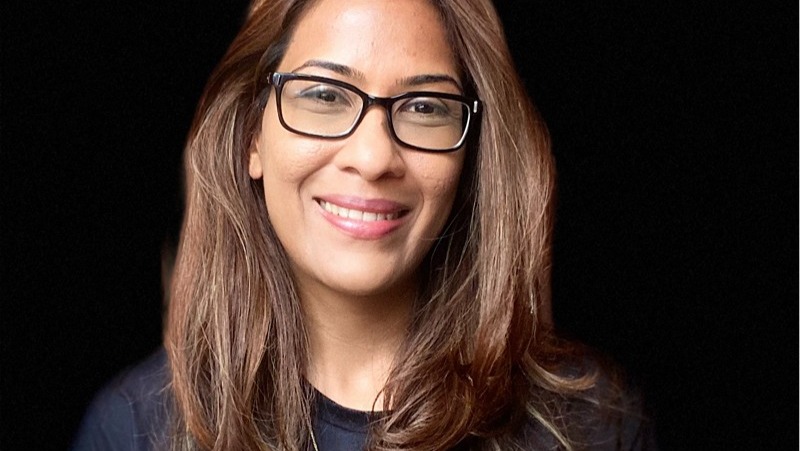
[Project Lead] Sheena Shah, Permaculture Practitioner & Director, Harvesting for Good East Africa
Sheena is an Educator and Permaculture Design Practitioner with over 10 years experience. She is the former Education Programme Manager of the Permaculture Research Institute of Kenya (PRI Kenya), with more than 6,500 people trained in Permaculture Design and three International Training of Trainers certified courses. She was appointed the Executive Director for the PRI Kenya from 2016 to 2018, responsible for overall management, field operations, strategy, programme delivery, partnerships and communications. Sheena helped develop and design PRI Kenya’s reputable consultancy programme and framework for PRI Kenya. Together the team designed a participatory permaculture design curriculum which was offered to small and larger NGOs and businesses across Africa, working with clients such as Save the Children, Community Forest International, Trocaire, IDDEF, Mercy Corps, Kenya School of Integrated Medicine, NRC, just to name a few. Sheena also master-minded PRI Kenya’s social media presence from inception which really helped build up the organization’s reputation and storytelling platform.
Sheena is now the Founder and Director of Harvesting for Good East Africa. HFG-EA's aim is to transform micro and macro lots, integrated with permaculture design for long term resilience.
Sheena's focus is on regenerative business, using solutions to ensure long-term sustainable development in small-scale projects and markets, whilst overseeing permaculture development in East Africa. Her talent lies in her ability to creatively solve challenging issues while understanding the building process and practicalities of creating a successful landscape.
Sheena is a Gaia University Associate and now an Associate of the University of Pennsylvania's- School of Social Impact & Strategy. She is also part of the Advisory Board at permEzone. She teaches part time at Ecodemia, a UK based virtual learning hub and is currently pursuing her fellowship at Metis.
 Organizer and beneficiary
Organizer and beneficiary
Harvesting for Good East Africa
Organizer
Fox, AR
Merina Ingram
Beneficiary